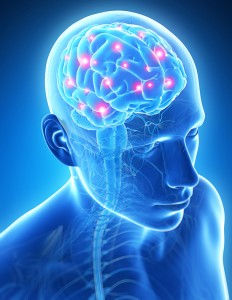
People with Alzheimer’s disease and other dementias experience a range of symptoms. However, every individual is unique. The presence and severity of these symptoms vary greatly from person to person and can also change from day to day. Most symptoms change gradually over the progression of the disease.
Here are some examples of the different types of symptoms that people with dementia tend to experience.
- Changes in mood (for example, many people with dementia experience depression).
- Delusions and hallucinations are symptoms of Alzheimer’s disease and other dementias. With delusions or hallucinations, people do not experience things as they really are.
- Sundowning is a term referring to when someone becomes confused, anxious, aggressive, agitated, or restless later in the day.
- Responsive behaviours, which may include such things as agitation and aggression. These behaviours can often be particularly challenging for caregivers.
- Repetitive behaviours, such as repeating the same phrase or action continuously.
- Wandering and disorientation, which are a concern for many people with dementia and their families. Understanding why they occur and how to minimize them can be helpful.
For more information about these symptoms, please visit http://www.alzheimer.ca/en/bc/Living-with-dementia/Caring-for-someone/Understanding-symptoms and click on the links associated with each symptom to learn more.




 Plus, because seniors are often on a lot of medications, many seniors don’t fully understand how to take their meds, when to take them, when not to mix their pills, and so on, which also leads to a lot of preventable medication-related problems.
Plus, because seniors are often on a lot of medications, many seniors don’t fully understand how to take their meds, when to take them, when not to mix their pills, and so on, which also leads to a lot of preventable medication-related problems. At least not according to a recent study published in the prestigious Proceedings of the National (US) Academy of Sciences. Specifically what these researchers concluded by looking at a bunch of studies that measured brain performance after brain training is that although these apps and programs can improve memory or IQ a slight bit, that effect is mainly due to a placebo effect because simply knowing that you’re taking a brain training app is enough to have a small positive effect on your cognitive abilities, which fits what most “memory experts” have been saying for a long time, that is, that the science behind these memory training apps is very scant at best, and that you should be wary about their positive promises.
At least not according to a recent study published in the prestigious Proceedings of the National (US) Academy of Sciences. Specifically what these researchers concluded by looking at a bunch of studies that measured brain performance after brain training is that although these apps and programs can improve memory or IQ a slight bit, that effect is mainly due to a placebo effect because simply knowing that you’re taking a brain training app is enough to have a small positive effect on your cognitive abilities, which fits what most “memory experts” have been saying for a long time, that is, that the science behind these memory training apps is very scant at best, and that you should be wary about their positive promises. Because long-term excess sunlight exposure raises the risk of at least two very common eye disorders.
Because long-term excess sunlight exposure raises the risk of at least two very common eye disorders.
